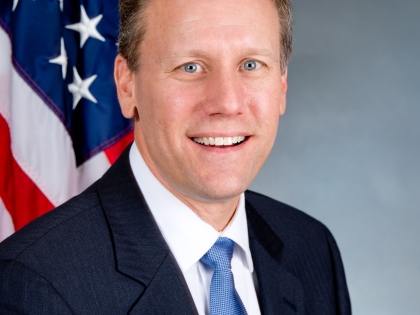
Historic Ethics Reform Legislation Passes Senate WITH Senator Valesky, Idc Support
David J. Valesky
June 13, 2011
-
ISSUE:
- Ethics
Senator David J. Valesky (D-Oneida) and his fellow members of The Independent Democratic Conference joined their colleagues in the Senate and the Assembly today to pass a comprehensive ethics reform package that strengthens oversight of the State Legislature, increases transparency, and helps restore the public's faith in their state government.
The legislation includes many parts of an ethics overhaul package the IDC proposed earlier this year. These elements include:
· Creating a strong watchdog over the Legislature that does not hinge on legislators sitting in judgment of each other.
· Shining the light on legislators' outside activities by creating additional disclosure requirements on outside income and outside clients.
· Stripping public pensions from public servants convicted of using their positions to violate the public's trust.
“Passage of this legislation is a tremendous step forward in changing the dysfunctional culture in Albany,” Senator Valesky said. “By providing for greater transparency, better enforcement and serious penalties for violators, this bill will help rebuild our state government into one which New Yorkers can finally be proud of again.”
The legislation, called the Public Integrity Reform Act of 2011, includes:
Greater Financial Disclosure: Financial disclosure statements filed with the new Joint Commission on Public Ethics from elected officials will now be posted on the internet and the practice of redacting the monetary values and amounts reported by the filer will be ended. The Act also includes greater and more precise disclosure of financial information by expanding the categories of value used by reporting individuals to disclose the dollar amounts in their financial disclosure statements. The Act requires disclosure of the reporting individual’s and his or her firm’s outside clients and customers doing business with, receiving grants or contracts from, seeking legislation or resolutions from, or involved in cases or proceedings before the State as well as such clients brought to the firm by the public official.
Increased Access to Who is Appearing Before the State and Why: The Act establishes a new database of any individual or firm that appears in a representative capacity before any state governmental entity.
Additional Disclosures for Registered Lobbyists: The bill expands lobbying disclosure requirements, including the disclosure by lobbyists of any "reportable business relationships" of more than $1,000 with public officials. It also expands the definition of lobbying to include advocacy to affect the "introduction" of legislation or resolutions, a change that will help to ensure that all relevant lobbying activities are regulated by the new Joint Commission.
Forfeiture of Pensions for Public Officials Convicted of a Felony: Certain public officials who commit crimes related to their public offices may have their pensions reduced or forfeited in a new civil forfeiture proceeding brought by the Attorney General or the prosecutor who handled the conviction of the official.
A New Joint Commission on Public Ethics: The Joint Commission on Public Ethics will replace the existing Commission on Public Integrity with jurisdiction over all elected state officials and their employees, both executive and legislative, as well as lobbyists. The bipartisan Joint Commission will consist of 14 members:
· Six appointed by the Governor and Lieutenant Governor, at least three of whom shall be enrolled members of the major political party that is not that of the Governor
· Eight appointed by the legislative leaders.
The Joint Commission will have jurisdiction to investigate potential violations of law by legislators and legislative employees and, if violations are found, issue findings to the Legislative Ethics Commission, which will have jurisdiction to impose penalties. Significantly, if the joint commission reports such a violation to the Legislative Ethics Commission ( with full findings of fact and conclusions of law), that report must be made public along with the Legislative Ethics Commission’s disposition of the matter within strict time frames. The Joint Commission will have jurisdiction to impose penalties on executive employees and lobbyists. Any potential violations of federal or state criminal laws will be referred to the appropriate prosecutor for further action.
The Joint Commission will also conduct mandatory ethics training for executive and legislative officials, except instances where such training already exists, and track the status of compliance and make it available to the public.
Clarifying Independent Expenditures For Elections: The Act requires the state board of elections to issue new regulations clarifying disclosure of Independent Expenditures.
Increased Penalties for Violations: The Act substantially increases penalties for violations of the filing requirements and contribution limits in the Election Law, and provides for a special enforcement proceeding in the Supreme Court. The bill also increases penalties for violations of certain provisions of the state’s code of Ethics that prohibits conflicts of interest.
Share this Article or Press Release
Newsroom
Go to NewsroomSenator Valesky Warns Public About Rebate Tax Scammers
October 1, 2014
Albany Times-Union Op-Ed: Pathway through state's current job crisis
September 26, 2014
Valesky bill to cover equipment and supplies for ostomies signed into law
September 25, 2014
